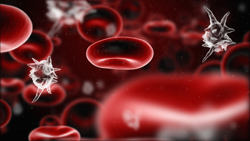Patient-centred treatment for septic shock
Septic shock is a condition that occurs as a result of severe infection to cause a systemic inflammatory response. Fatality from sepsis is high and mainly affects children, the elderly and those with a compromised immune system. The 'Genetics of sepsis in Europe' (Genosept) project aimed to raise clinical awareness of how a patient's genes may affect important variables like response to treatment and possibility of fatal outcome. To achieve this goal, project scientists defined novel candidate genes linked to the condition using expression studies. The identified genes were then analysed in relation to predisposition to sepsis-related mortality in European intensive care units. Genosept scientists have established a system whereby future data can be recorded and therefore pooled in a database for further analysis. An electronic case report form (eCRF) provides details of each patient. Each eCRF is verified for quality and information content. Most important for genotyping was the identification and evaluation of relevant candidate genes and their markers related to sepsis. Project researchers also developed processes and systems for blood sampling and genotyping tests. Statistical analysis of the data linked the genetic variants identified with probability of mortality. Furthermore, the analysis pointed to associations between patient genes and phenotype related to sepsis outcomes. Genosept has built a bridge between genomics and intensive care clinicians involved in this often fatal condition. Application of data means that expensive treatments for septic shock may be focused on high-risk patients. Standardisation of protocols also may be translated into the reduction of sepsis-related mortality.







